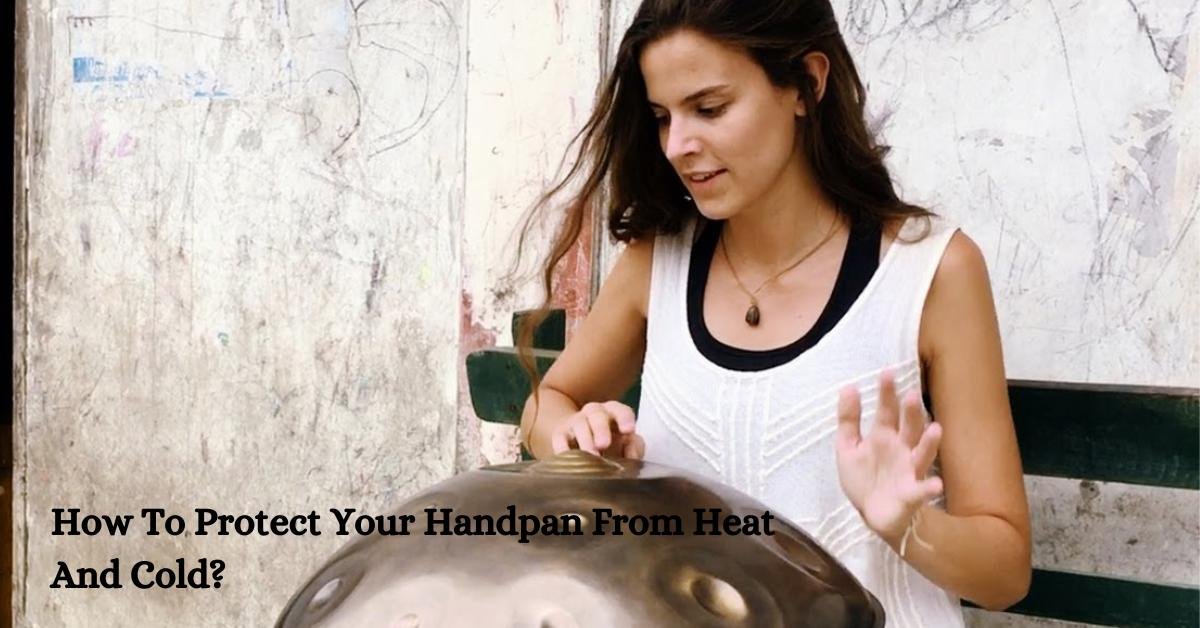Physical Address
304 North Cardinal St.
Dorchester Center, MA 02124
Physical Address
304 North Cardinal St.
Dorchester Center, MA 02124


To protect your handpan from heat and cold, keep it out of direct sunlight, avoid leaving it in hot or cold cars, store it in a temperature-controlled environment, and allow it to adjust to a new temperature gradually. By following these tips, you can ensure that your handpan stays in good condition and continues to produce beautiful music.
Before we dive into the methods of protecting your handpan from heat and cold, it is important to understand how these extreme temperatures can affect your instrument. Extreme temperatures can cause the metal of the handpan to expand or contract, which can lead to a change in its shape or even cause it to crack.

Additionally, temperature changes can affect the tuning of the handpan, making it sound different than usual. Therefore, it is important to take precautions to protect your handpan from extreme temperatures.
Heat can be particularly damaging to a handpan, as it can cause the metal to expand and even warp. Here are some tips for protecting your handpan from heat:
Cold temperatures can also be damaging to a handpan, as they can cause the metal to contract and even crack. Here are some tips for protecting your handpan from the cold:
Taking care of a handpan involves several important steps. First, it is important to store the handpan in a safe and dry location when not in use. Second, handpans should be played gently and with clean hands to prevent any damage or rust.

Additionally, handpans should be cleaned regularly with a soft, dry cloth, and any dust or debris should be removed carefully. Finally, it is important to protect the handpan from extreme temperatures, both hot and cold, to ensure that it remains in good condition.
The lifespan of a handpan depends on several factors, including the quality of the instrument, how well it is taken care of, and how frequently it is played. With proper care, a handpan can last for several years, and some handpans have even lasted for decades. However, it is important to note that handpans are delicate instruments and require careful handling to ensure their longevity.
The ideal temperature for a handpan is room temperature, which is typically around 68-72°F (20-22°C). However, handpans can tolerate temperatures within a range of about 40-85°F (4-29°C). It is important to avoid exposing the handpan to extreme temperatures, as this can cause damage to the instrument. Additionally, if a handpan becomes too hot or too cold, it should be allowed to adjust to a new temperature gradually to avoid further damage.
Handpans are often used for therapeutic purposes, as the unique sound of the instrument can be calming and soothing. Many people find that playing or listening to handpan music can help to reduce stress and anxiety, and some even use handpans as part of meditation or mindfulness practices. While there is no scientific evidence to support the idea that handpans are healing, many people find that the instrument has a positive effect on their emotional well-being.
Can I leave my Handpan in a car during the winter?
No, you should avoid leaving your handpan in a car during the winter, as the cold temperatures can cause the metal to contract and potentially crack.
Is it safe to play my Handpan in direct sunlight?
While it is possible to play your Handpan in direct sunlight, it is not recommended, as the temperature of the metal can rise quickly, potentially causing damage.
Can I store my Handpan in a garage?
It is not recommended to store your handpan in a garage, as garages can be prone to temperature fluctuations, which can damage the instrument.
Do handpans go out of tune?
Yes, handpans can go out of tune over time, especially if they are not cared for properly or are played too aggressively.
Protecting your handpan from extreme temperatures is essential to ensuring its longevity and preserving its beautiful sound. By following the tips and techniques outlined in this blog post, you can enjoy playing your handpan for years to come. Remember to keep your handpan out of direct sunlight, avoid leaving it in hot or cold cars, and store it in a temperature-controlled environment.
Additionally, if your handpan does become too hot or too cold, allow it to adjust to a new temperature gradually. By taking these simple precautions, you can protect your handpan and keep it sounding beautiful for years to come.
[…] cloth. Do not use any harsh chemicals or abrasive materials, as they can damage the surface of the handpan. If the handpan has any stubborn stains or marks, you can use a small amount of mild soap or […]